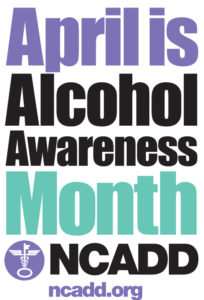 The need to provide meaningful education on the dangers of underage drinking and drug use here in Yorktown has never been greater.
The need to provide meaningful education on the dangers of underage drinking and drug use here in Yorktown has never been greater.
A few facts help to highlight that need:
Alcohol and drugs are the leading causes of crime among youth.
Alcohol and drugs are the leading factors in teenage suicide.
More than 23 million people over the age of 12 are addicted to alcohol and other drugs.
Young people, like adults, drink alcohol for many different reasons. Some of the reasons may seem obvious, but understanding the feelings behind these reasons – as well as how everyday teen life comes into play – can be difficult.
Young people often drink to check out from family problems or issues with school and grades; loneliness, low self-esteem, depression, anxiety disorder and other mental health issues can contribute; they may drink to deal with the pressures of everyday social situations, to change their image or to fit in when moving to a new school or town; to gain confidence or lose inhibitions.
As kids get older and alcohol and drugs enter the picture, parents are faced with a unique set of challenges. They can simply sit back and hope their kids will “get through it,” or they can take an active role in learning about alcohol and drugs – and helping their kids to do the same.
Parents can be a primary source of positive and reliable information. In fact, research has shown that kids who have conversations with their parents and learn a lot about the dangers of alcohol and drug use are 50% less likely to use these substances than those who don’t have such conversations.
And it is important to take advantage of “teachable moments” when parents and other adults can help kids connect the dots about underage drinking and drug use. It’s not so much about having “the big talk,” but about being there for them when the issues come up – on TV, at the movies, on the radio; about celebrities or sports figures, or about their friends.
According to the National Council on Alcoholism and Drug Dependence, here are some guidelines that can help parents talk about alcohol and drug use:
Listen before you talk: For kids, knowing that someone is really listening is most important. Ask open-ended questions. Be involved. Be honest and open. Be positive: talking about these issues can build bridges rather than walls. And remember, addiction is a chronic, progressive disease that can be linked to family history and genetics. So, if you there is a family history of problems be matter of fact about it, as one would be with any other chronic disease, such as heart disease, diabetes or cancer.
“Alcohol and drug use is a very risky business for young people,” says Andrew Pucher, President and Chief Executive Officer of NCADD, “and parents can make a difference. The longer children delay drinking and drug use, the less likely they are to develop problems associated with it. That’s why it is so important to help your child connect the dots and make smart decisions about alcohol and drug use.”
